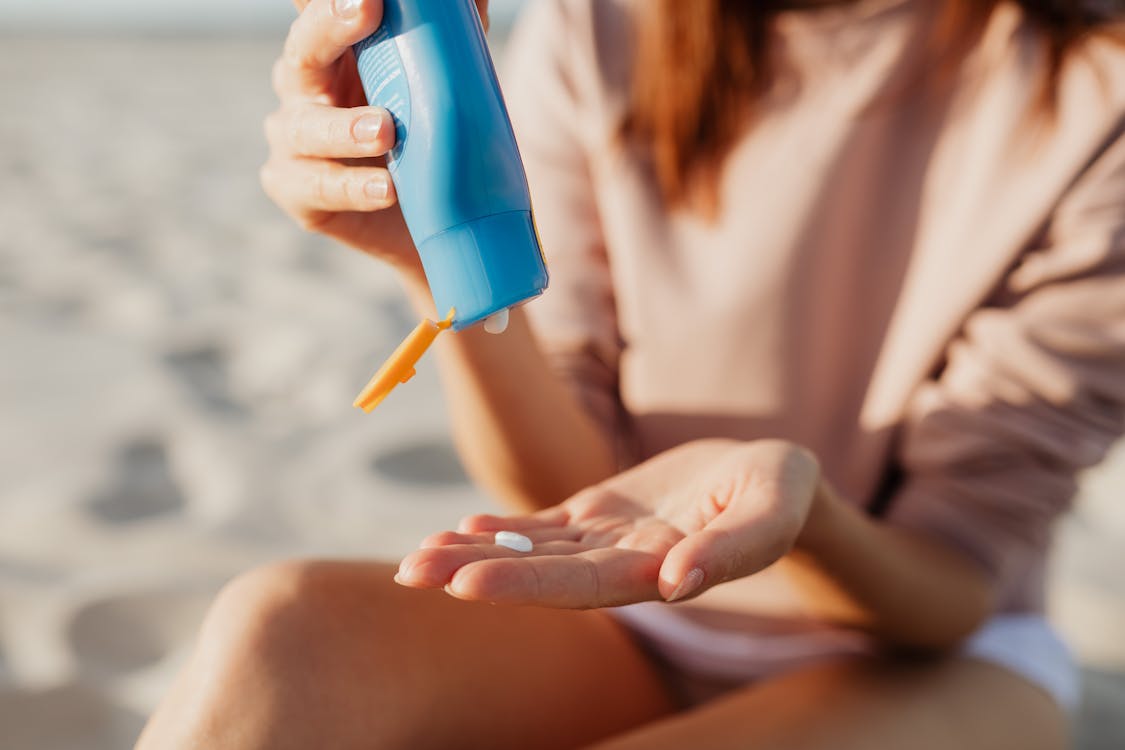Introduction
Sunscreen is a crucial component of a comprehensive skincare
routine, protecting the skin from the harmful effects of ultraviolet (UV)
radiation. Despite its significance, many people still overlook its daily use.
This essay delves into the myriad benefits of wearing sunscreen on your face
and body, highlighting its role in preventing skin cancer, premature aging, and
other skin-related issues.
Protection Against UV Radiation
1. Preventing Skin Cancer
One of the most compelling reasons to wear sunscreen is its
ability to protect against skin cancer. UV radiation from the sun is a known
carcinogen, with both UVA and UVB rays contributing to skin damage. UVA rays
penetrate the skin more deeply and are primarily responsible for long-term skin
damage and aging, while UVB rays are the main cause of sunburn. Both types can
lead to skin cancer, including melanoma, basal cell carcinoma, and squamous
cell carcinoma.
Melanoma: The deadliest form of skin cancer, melanoma, can
develop when melanocytes (the cells that produce pigment) are damaged by UV
radiation. Regular use of sunscreen can significantly reduce the risk of
developing melanoma.
Non-Melanoma Skin Cancers: Basal cell carcinoma and squamous
cell carcinoma, while less deadly than melanoma, are more common and can cause
significant disfigurement. Sunscreen helps protect against these cancers by
preventing the DNA damage that triggers their development.
2. Preventing Sunburn
Sunburn is an immediate and visible effect of excessive UV
exposure. Sunburns can cause pain, redness, swelling, and in severe cases,
blistering and peeling. Repeated sunburns increase the risk of skin cancer and
contribute to premature aging. Sunscreen acts as a barrier, absorbing or
reflecting UV rays, thereby preventing sunburn.
Anti-Aging Benefits
1. Prevention of Premature Aging
Exposure to UV radiation accelerates the skin's aging
process, a phenomenon known as photoaging. This includes the development of
wrinkles, fine lines, age spots, and a leathery texture.
Wrinkles and Fine Lines: UVA rays penetrate deeply into the
skin, damaging collagen and elastin fibers. These structural proteins keep the
skin firm and elastic. When they are broken down by UV radiation, the skin
loses its firmness and begins to sag, leading to wrinkles and fine lines.
Hyperpigmentation: UV exposure can cause an overproduction
of melanin, leading to dark spots and uneven skin tone. Sunscreen helps prevent
these changes by blocking UV rays from reaching the deeper layers of the skin.
2. Maintaining Skin Texture and Tone
Sunscreen helps maintain a smooth and even skin texture by
protecting the skin from damage. Regular use of sunscreen prevents the
development of rough patches, dry spots, and discoloration, resulting in a more
uniform skin tone and texture.
Overall Skin Health
1. Protection Against Sun Sensitivity
Certain individuals are more sensitive to the sun due to
medical conditions or medications that increase photosensitivity. Sunscreen is
essential for these individuals as it provides a protective barrier against the
heightened risks of UV exposure.
2. Reduction of Inflammation and Redness
UV radiation can cause inflammation and exacerbate
conditions such as rosacea and acne. Sunscreen helps reduce this inflammation
by protecting the skin from UV-induced damage. This is particularly important
for individuals with sensitive skin or those prone to skin conditions that
cause redness and irritation.
Long-Term Benefits
1. Reduced Risk of Developing Photodermatoses
Photodermatoses are a group of skin conditions triggered or
worsened by UV exposure. These include polymorphous light eruption, solar
urticaria, and chronic actinic dermatitis. Sunscreen helps manage and prevent
the flare-ups associated with these conditions by limiting UV exposure.
2. Enhanced Effectiveness of Skincare Products
Many active ingredients in skincare products, such as
retinoids and certain antioxidants, can make the skin more sensitive to the
sun. Using sunscreen protects the skin from the potential irritation and damage
these products can cause when exposed to UV radiation, ensuring their
effectiveness and preventing adverse reactions.
Practical Considerations for Using Sunscreen
1. Choosing the Right Sunscreen
Selecting the appropriate sunscreen is crucial for optimal
protection. Here are some factors to consider:
Broad-Spectrum Protection: Ensure the sunscreen offers
broad-spectrum protection, meaning it protects against both UVA and UVB rays.
SPF Rating: The Sun Protection Factor (SPF) indicates the
level of protection against UVB rays. An SPF of 30 or higher is generally
recommended for daily use.
Water Resistance: For activities involving water or
excessive sweating, choose a water-resistant sunscreen to maintain protection.
2. Proper Application
For sunscreen to be effective, it must be applied correctly:
Quantity: Use enough sunscreen to cover all exposed skin.
For the face, about a teaspoon, and for the body, at least an ounce
(approximately a shot glass) is recommended.
Timing: Apply sunscreen at least 15 minutes before going
outdoors to allow it to bind properly to the skin.
Reapplication: Reapply every two hours, or more frequently
if swimming or sweating.
3. Daily Use
Incorporating sunscreen into your daily routine is vital,
not just on sunny days or during the summer. UV rays penetrate clouds and can
cause skin damage even on overcast days. Consistent daily use of sunscreen
ensures continuous protection.
Conclusion
In summary, the benefits of wearing sunscreen on your face
and body extend far beyond mere sunburn prevention. Sunscreen plays a crucial
role in protecting against skin cancer, preventing premature aging, and
maintaining overall skin health. It helps reduce inflammation, protects against
photodermatoses, and enhances the effectiveness of other skincare products. By
choosing the right sunscreen and applying it properly every day, individuals
can safeguard their skin against the harmful effects of UV radiation, ensuring
healthier, more youthful skin over the long term. Incorporating sunscreen into
a daily skincare routine is a simple yet powerful step towards achieving and
maintaining optimal skin health.

